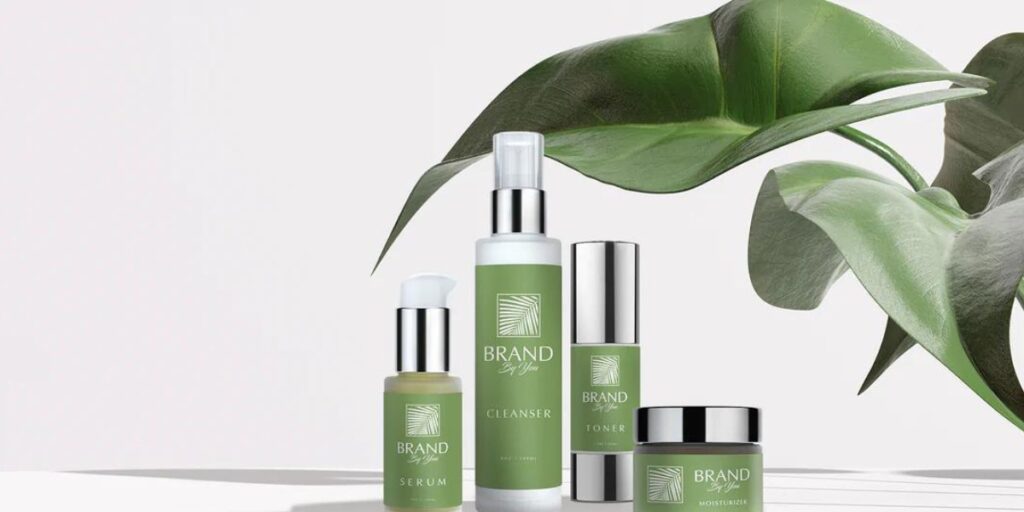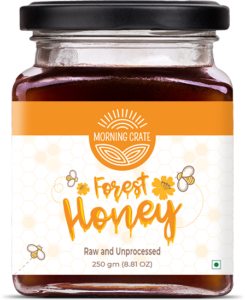The skincare industry is booming, with consumers becoming increasingly conscious of their choices. From ensuring ethically sourced ingredients to supporting brands that offer transparency, buyers are now more inclined to invest in products they can trust. One area seeing explosive growth is the private label organic skincare sector. This innovative approach to skincare is opening doors for new and existing businesses looking to offer quality skincare solutions while standing out in a competitive market.
Whether you’re a budding entrepreneur or an established brand, the idea of launching your own private label skin care products can be an enticing proposition. This article will guide you on how you can benefit from this trend and why custom skin care formulations are at the forefront of today’s beauty industry.
What is Private Label Organic Skincare?
Private label organic skincare refers to pre-manufactured, ready-to-brand skincare products made from organic ingredients. Companies that specialize in private labeling allow businesses to customize and brand these products as their own. This enables businesses of all sizes to enter the skincare market without the enormous overhead costs associated with developing formulations and production from scratch.
By focusing on organic products—those made with natural ingredients free from chemicals, pesticides, and synthetic enhancers—brands can capitalize on the growing demand for “clean beauty” options. Consumers are increasingly rejecting conventional products filled with harsh chemicals, making organic skincare a golden opportunity for those hoping to build a loyal customer base.
The Benefits of Private Labeling
The skincare sector is notoriously competitive, but private labeling offers an accessible and efficient pathway to stand out. Here’s why private label products, especially organic ones, are a game-changer:
- Lower Development Costs
Developing a skincare product from the ground up requires immense resources—funds, time, and expertise. Private label organic skincare eliminates these challenges, as the base formulations are already crafted and tested. Businesses simply need to tweak packaging, branding, and occasionally ingredients to create a product unique to their name.
- Customization Opportunities
With custom skin care formulations, brands can personalize products to align with their identity and values. Whether it’s adding specific active ingredients to target niche concerns or using sustainable packaging, customization allows brands to carve a unique spot in the market.
- Faster Time to Market
The beauty industry thrives on trends, and timing can make or break a brand. By partnering with private label manufacturers, businesses can roll out products faster, ensuring they remain relevant and competitive.
- Focus on Brand Building
With production hurdles out of the way, entrepreneurs can focus on what truly matters—building relationships with customers, marketing their products, and solidifying their brand identity.
Why Organic Skincare Products?
The organic skincare market has grown drastically over the past decade, primarily driven by consumer demand for healthier and more eco-friendly products. Here’s why organic skincare products are a must-have for any brand looking to thrive in today’s environment:
- Clean Ingredients
Traditional skincare products often include synthetic chemicals that can irritate skin or cause long-term health risks. Organic products, however, are formulated with natural ingredients like botanical extracts, essential oils, and minerals, making them gentler and safer for all skin types.
- Sustainability Appeal
By incorporating eco-conscious practices into their production process, organic skincare brands can connect with eco-minded consumers. Many private label manufacturers offer biodegradable ingredients and sustainable packaging, appealing to buyers who prioritize ethical practices.
- Health and Wellness Trend
Skincare isn’t just about surface beauty anymore; it’s part of a larger emphasis on holistic health and wellness. Organic products reinforce this narrative, particularly for customers who seek to avoid preservatives, parabens, and artificial dyes in their daily routine.
- Differentiation in a Crowded Market
Offering organic private label skin care products allows brands to stand out in a crowded beauty market. Buyers are willing to pay a premium for organic options, ensuring better profit margins while meeting market demands.
Custom Skin Care Formulations for Unique Brand Identity
One of the undeniable perks of venturing into the private label skincare business is the ability to create custom skin care formulations. Unlike generic products, custom formulations give brands the freedom to design skincare solutions tailored to specific audiences or skin types.
Here’s how custom skin care formulations help brands stand out:
1. Developing Products for Niche Markets
Custom formulations provide brands with the ability to cater to underserved audiences. For example, you might want to focus on post-workout skincare for fitness enthusiasts, acne solutions for teens, or anti-aging treatments for those over 40.
2. Highlighting Hero Ingredients
Skincare buyers are educated and ingredient-savvy, often looking for specific actives such as hyaluronic acid, vitamin C, or bakuchiol. Custom formulations give you control over your product’s composition, allowing you to align with trends and customer preferences.
3. Unparalleled Brand Authenticity
Custom products feel personal to the consumer. A brand can tout its formulations as unique, setting it apart from competitors with standard offerings.
4. Catering to Ethical and Wellness Standards
For a more premium appeal, your custom formulation can be free from cruelty, vegan-friendly, or certified organic. This reflects positively on your brand, as ethical considerations are often deciding factors for customers today.
How to Get Started with Private Label Organic Skincare
Breaking into the private label skincare industry is easier than you might think. Here are steps to guide you along the way:
Step 1. Partner with a Trusted Private Label Manufacturer
When choosing a private label manufacturer, look for companies experienced in creating organic skincare products. Ensure they offer high-quality formulations and provide options for customization.
Step 2. Define Your Niche
Pinpoint the audience you want to serve. Are you targeting millennials, men, or environmentally conscious consumers? Understanding your demographic will help you shape your branding and product line.
Step 3. Choose Your Product Selection
Decide on the type and number of products you’ll offer. A starter kit might include a cleanser, moisturizer, and serum. Then expand your product range as your brand gains traction.
Step 4. Customize with Care
Work with the manufacturer to tailor formulas, packaging, and product descriptions to resonate with your customer base. Don’t overlook details like logos or eco-friendly labeling, as they can make a big impact.
Step 5. Prepare for Marketing and Distribution
Consider how you’re going to launch your products, whether on an e-commerce platform, through social media, or in retail stores. Highlight exclusive benefits such as “handpicked ingredients” or “dermatologist-approved formulations” in your marketing.
Step 6. Build a Community
Organic skincare enthusiasts often prioritize community. Use social platforms, blogging, or workshops to connect directly with your audience and create a loyal customer base.
Key Takeaways
The demand for private label organic skincare presents a lucrative opportunity for businesses wishing to create their mark in the beauty industry. Whether you’re a seasoned entrepreneur or just starting out, incorporating custom skin care formulations into your brand strategy can help you stand out and capture an increasingly discerning audience.
With its focus on clean beauty and sustainable practices, the organic skincare industry is not just a trend—it’s a market shift that’s here to stay. By investing in private label skin care products, businesses can prioritize quality, build trust, and foster lasting customer relationships.




Average Rating